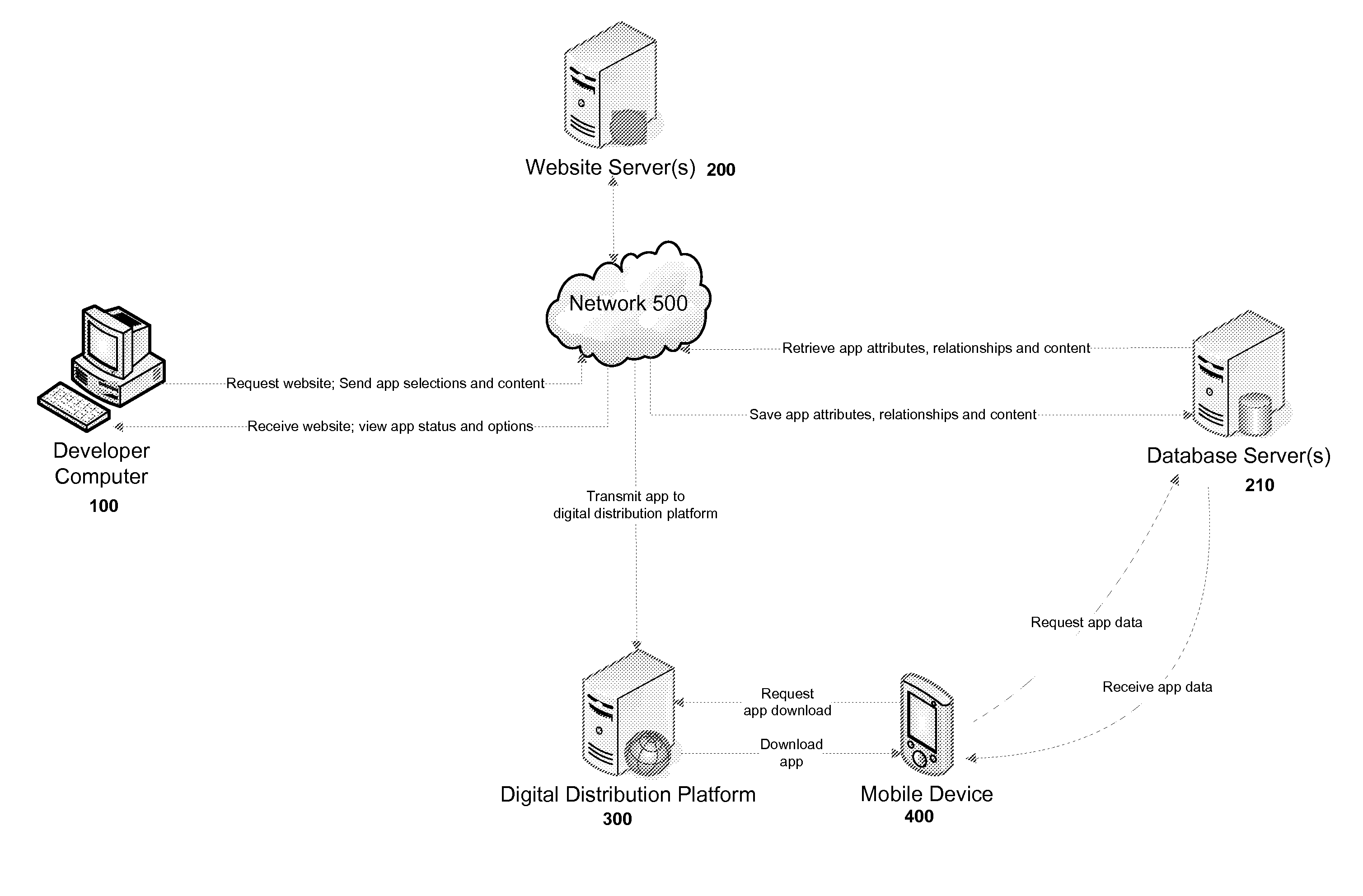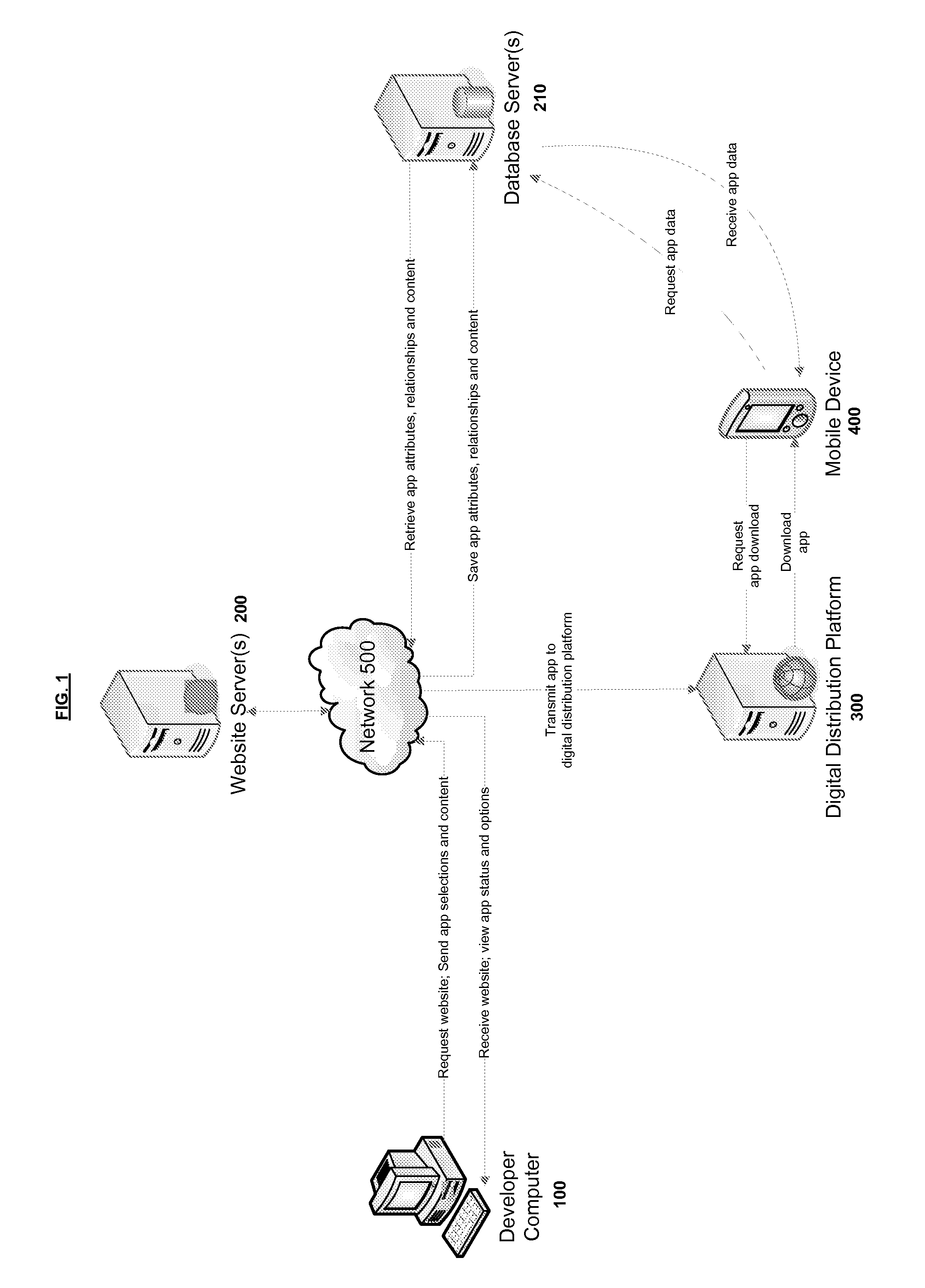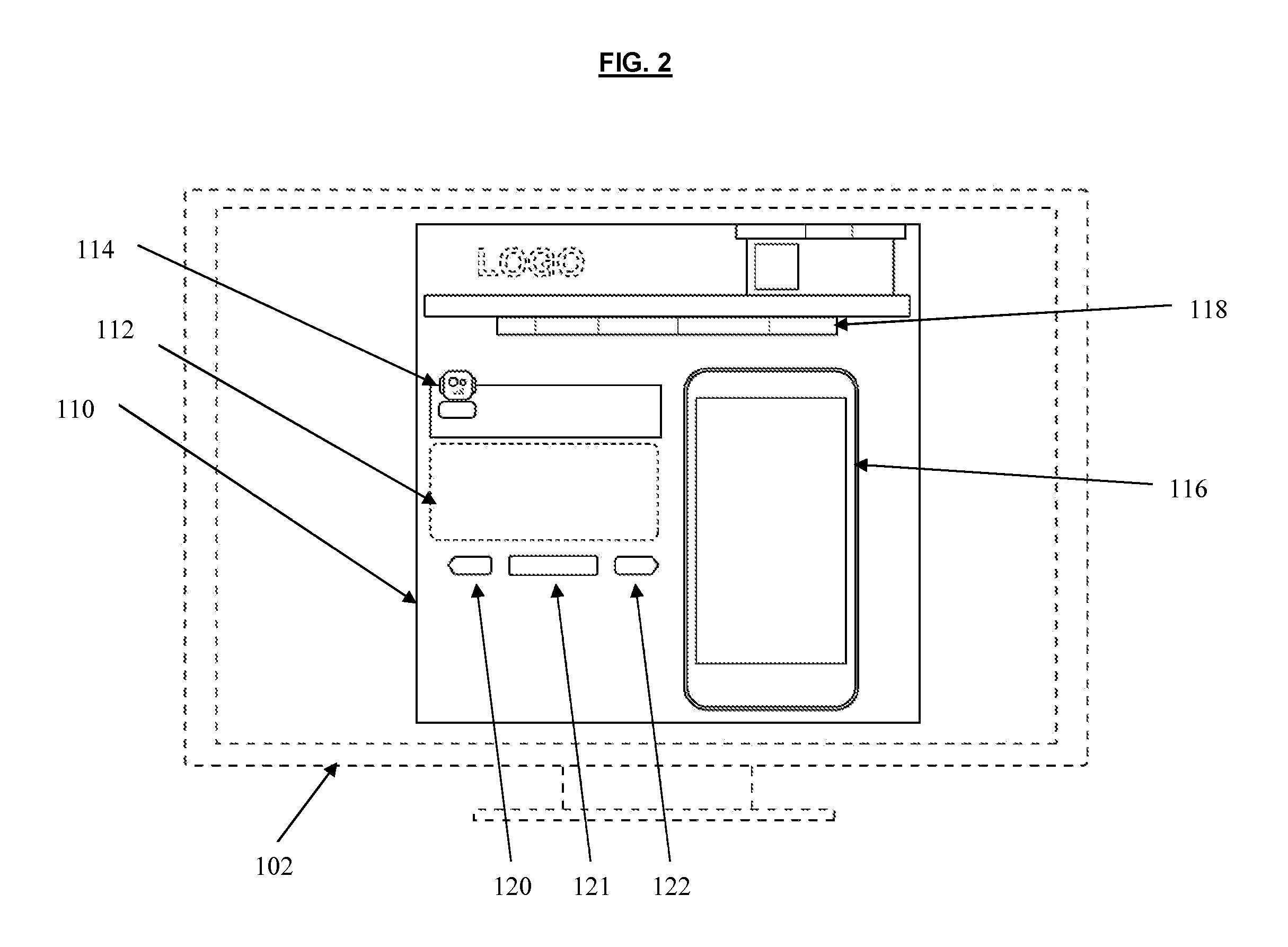Systems and methods for a mobile application development and deployment platform
a mobile application and deployment platform technology, applied in the field of system and method development of computer software applications, can solve the problems of difficult to write software applications that are portable across multiple types of mobile devices, development of a number of dissimilar and incompatible and the development of a number of mobile device platforms and environments that are not compatible with each other, so as to achieve a high degree of customizability
- Summary
- Abstract
- Description
- Claims
- Application Information
AI Technical Summary
Benefits of technology
Problems solved by technology
Method used
Image
Examples
Embodiment Construction
[0075]As discussed above, non-technical mobile device users and other individuals may have a difficult time relying on existing, non-user-friendly software systems to develop mobile applications (“mobile apps” or “apps”) for various types of mobile devices. This is especially true for users who want to develop, release and update mobile apps that utilize certain device-specific features and functionality of multiple mobile device operating systems. To reduce the burden for, and make the development and deployment process accessible to, such users, systems and methods are provided herein that allow users to develop and distribute mobile apps across multiple mobile operating systems without the need for technical knowledge of computer programming and mobile devices.
[0076]Certain embodiments pertain to a mobile development and distribution platform and corresponding arrangement that allows non-technical users and application developers to develop mobile apps through the platform that m...
PUM
 Login to View More
Login to View More Abstract
Description
Claims
Application Information
 Login to View More
Login to View More - R&D
- Intellectual Property
- Life Sciences
- Materials
- Tech Scout
- Unparalleled Data Quality
- Higher Quality Content
- 60% Fewer Hallucinations
Browse by: Latest US Patents, China's latest patents, Technical Efficacy Thesaurus, Application Domain, Technology Topic, Popular Technical Reports.
© 2025 PatSnap. All rights reserved.Legal|Privacy policy|Modern Slavery Act Transparency Statement|Sitemap|About US| Contact US: help@patsnap.com



